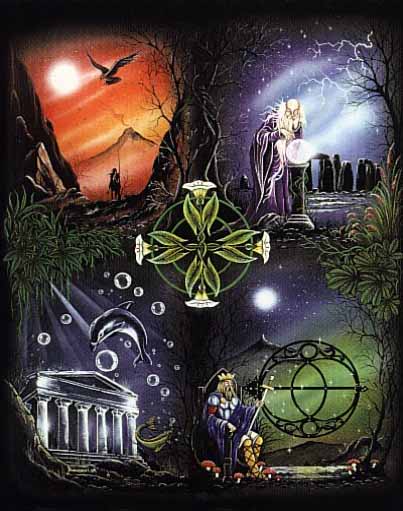
As in Judaism, God is the creator of humans. Islam is the religion that most strongly stresses the distinction between God and the world humanity is seen as dependent upon God and God's will. Whereas Hinduism and Buddhism emphasize how human nature is related to divine nature, the self is generally thought of as distinct from the divine in Semitic religions such as Islam and Judaism. This aim is realized when the self dissolves into the whole after death, but also can be anticipated in different forms of meditational practices. This can be done by transcending the world of the senses. To overcome individuality and to become part of the encompassing world is the aim of human life. Beyond the empirical human is the human essence, atman, which is identical with the ultimate reality, Brahman.


Like other pantheistic religions, both Hinduism and Buddhism affirm that human beings are related to all that is and, simultaneously, how the self is essentially divine. In Hinduism and Buddhism human nature is partly understood from the perspective of the self as part of all that is, and given the task of becoming the non-self. The variety of ways to understand human nature is expressed also in different world religions. Human nature in non-Western world religions
#Religions based on the 4 elements of nature free
Consequently, the sciences usually offer more material relevant to the understanding of the place of humans in nature than for answering questions about human destiny.Ī theory about human nature that also takes into consideration an understanding of the human place in nature usually has to account for some or all of the following issues: What specifically makes the human being as a species different from other species? What does it mean to be a person? Do human beings have free will? How does one understand morality, religion, and culture? How are these elements related to language and to human self-consciousness (subjectivity)? Is religion necessarily connected to humanity? Are humans able to act on reasons and principles that cannot be reduced to causes? What is one to think of death? What is the basis for human dignity? Some of these questions can be seen as attempts to differentiate between issues that, in the past, were discussed with reference to the difference between body and soul. Taken separately, these approaches offer a basis for the interpretation of human nature from a more naturalistic or humanistic view. Its importance is thus also related to interpretation of the place of human beings in history and culture. The latter is a more normative issue, related to the destiny of humanity in general, as well as to the individual's future and the meaning of the individual life. The former implies a descriptive approach and investigates different empirical and phenomenological aspects that help people better understand their place in nature.

These two issues do not necessarily coincide. However, as made clear by theologian Wolfhart Pannenberg in Anthropology in Theological Perspective (1985), one has to distinguish between the human being as part of nature, and the nature of the human being. They also try to define what specifically makes a human being different from other living things. Theories about human nature state something about the place of humans in nature. It is not simply a question of how humans are to understand this or that case, but an articulation of how humans understand, or ought to understand, themselves. Consequently, there is always a kind of normative self-reference in the way the question "What is human nature?" is answered. To say something about what a human being essentially (or in nature) is, implies saying something about what humans ought to be. Do humans have something like a nature? If so, in what does human nature consist? These questions can not be answered from a sole description of specific characteristics, which is one of the main reasons there is a continuous debate over this issue. The suggestion that there is such a thing as human nature implies a specific stance with relation to what a human being is. Human Nature, Religious and Philosophical Aspects


 0 kommentar(er)
0 kommentar(er)
